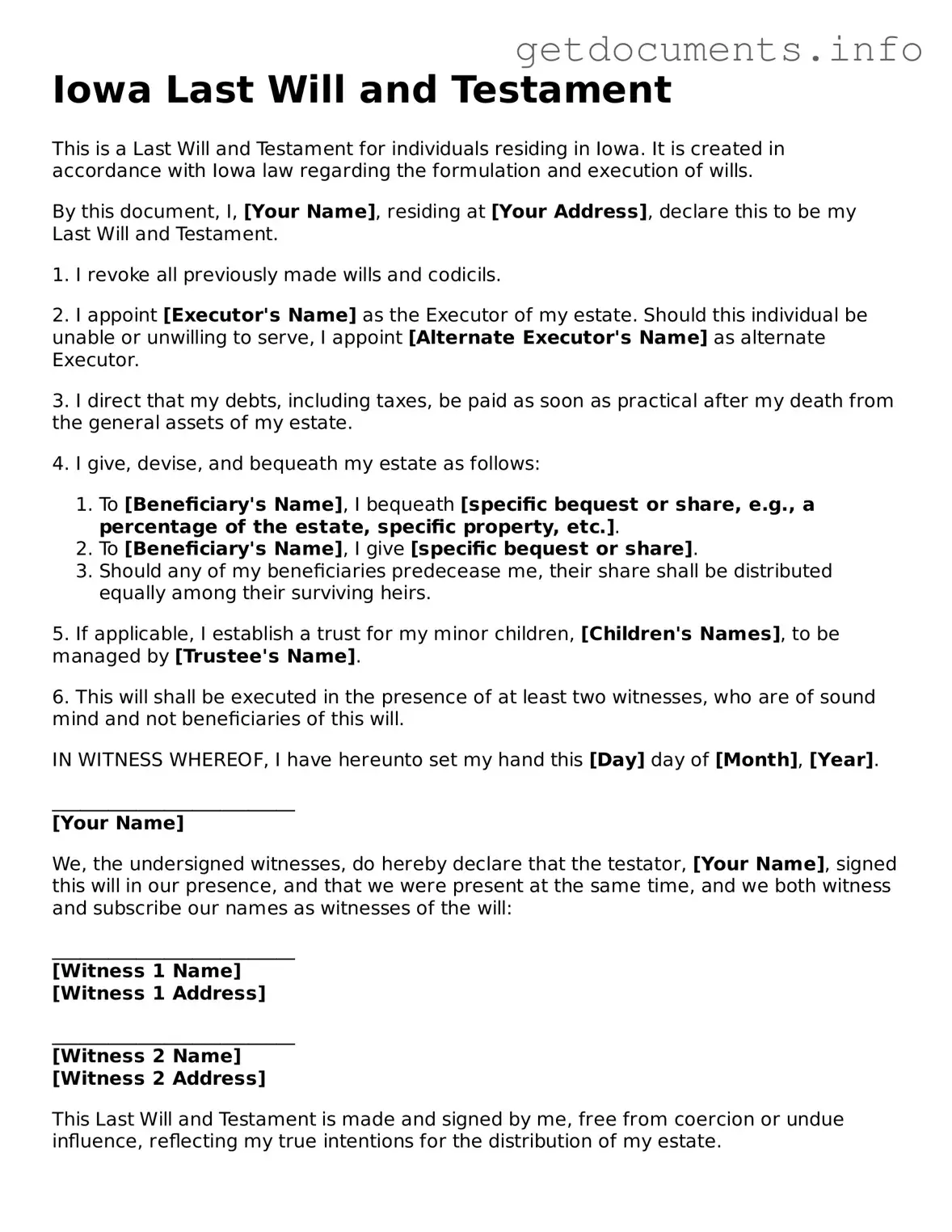Free Last Will and Testament Template for Iowa
A Last Will and Testament is a legal document that outlines how an individual wishes their assets and affairs to be handled after their death. In Iowa, this form serves to ensure that your wishes are honored and provides clarity for your loved ones during a difficult time. Understanding the requirements and implications of this form is essential for effective estate planning.
To begin the process of creating your Iowa Last Will and Testament, click the button below to fill out the form.
Access Last Will and Testament Editor

Free Last Will and Testament Template for Iowa
Access Last Will and Testament Editor
Got places to be? Complete the form fast
Fill out Last Will and Testament online and avoid printing or scanning.
Access Last Will and Testament Editor
or
⇩ PDF File
